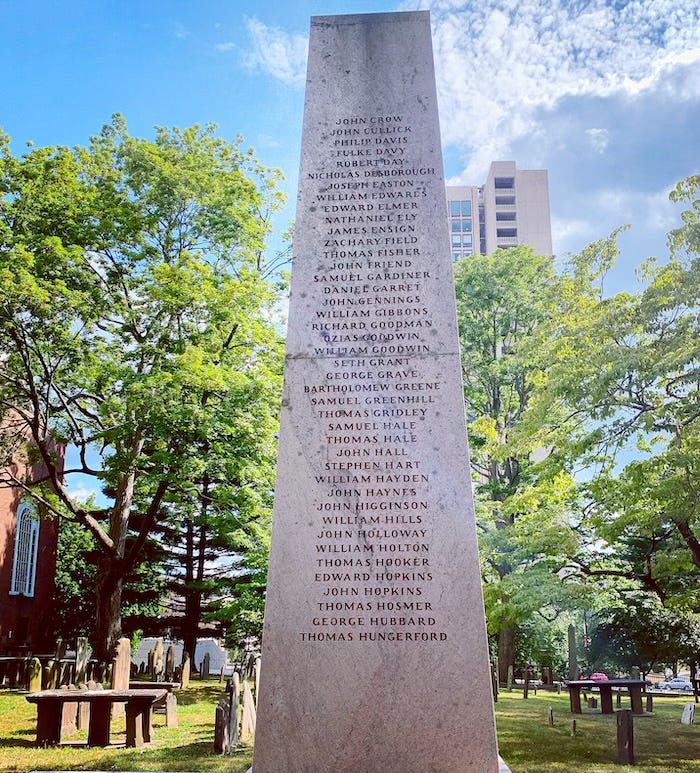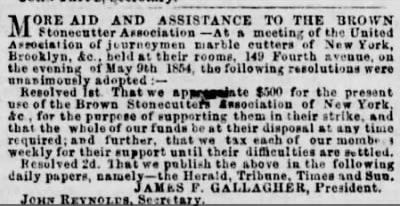Foundations, and What We Build Upon Them
Don’t hand over the tools. The future is still ours to shape.
The Chaos Isn’t the Point—But It Is Deliberate
The news cycle—especially for those of us who engage with “mainstream” media—feels relentless and, frankly, hopeless. Every hour brings another headline about assaults on civil rights, due process, justice, truth, the arts, and allyship. It is exhausting.
And it’s by design.
How can we concentrate on anything when everything demands our attention? That’s the point. Each issue may seem distinct, but they are all part of the same calculated strategy: to disenfranchise and disempower the majority of Americans.
Maintaining control—complete control—requires eroding critical thinking. Intimidation, accusation, dehumanization, isolation, obfuscation, and distraction are all tactics from an age-old playbook meant to keep people overwhelmed and disconnected.
What Can We Do?
Where should you look? What should you do? How can you stand up, fight back, and make a difference?
There is no one-size-fits-all answer. I do not use this term lightly, but the signs of fascism are present.
Last night, I read a Washington Post article detailing President Trump’s directive to empower Vice President Vance to define what is considered “anti-American” within the Smithsonian and remove it. Anyone who argues that this isn’t fascist either doesn’t understand the term or refuses to confront its implications.
Eliminating access to diverse ideas, narratives, identities, and historical complexity exemplifies textbook authoritarianism.
And here we sit.
Pick a Piece. Hold the Line.
Not all of us need to engage in every fight. But we do need to select one or two causes that we care about deeply and commit to them:
Speak out.
Protest when necessary.
Write to your legislators.
Support nonprofits and community organizations doing the work.
Perhaps most importantly, we must recognize that allies won’t always share our perspective. That’s okay. We must find common ground—wherever and whenever possible—to stem the tide that threatens to sweep us away.
An Imperfect Inheritance
My heart aches for what I witness in my country—a country I love and have proudly called home for more than half a century.
My family’s history reflects America’s narrative: hopeful, complex, courageous, and fraught. It embodies, in every sense, the story of an experiment. And America is an experiment.
There are two ways to govern—and to live:
One accepts imperfection, learns from it, and builds something better.
The other denies imperfection, perceives it as weakness, and obscures the truth to maintain a fragile illusion of strength.
History provides no examples in which the latter leads to lasting prosperity.
Politics isn’t a distant force; it’s a reflection of us. We are the architects of our political reality—not the politicians. They require our support to lead—whether through inspiration and trust, or fear and submission. Throughout history, oppression has cycled through periods, often occurring when elitist ideas clash with egalitarian values. America is no exception.
In My Bloodline
My mother’s lineage dates to the Mayflower. Twelve of the passengers are my direct ancestors. They were separatists and servants who escaped religious persecution and sought to preserve their identity in a new land. Later, my ancestors came with Winthrop, helping to found communities in Massachusetts, Rhode Island, and my home state of Connecticut. Some were Minutemen who fought for self-governance, while others were Loyalists who moved to Nova Scotia during the Revolution.

To the south, I can trace my roots to the Jernigan family—slave owners who fought for the Confederacy against my Northern kin.
My father’s family emigrated from Ireland in the 1800s—Protestants and Catholics—settling in New York, Boston, and Connecticut. They were farmers, laborers, and artisans. Some marched for civil rights, while others resisted progress. They were imperfect, but like many immigrants, they sought a better life for themselves and their children.
And so here I am—shaped by these contradictions and complexities—trying to honor that lineage by striving for understanding and progress.
They faced uncertainty and division. Not all would have stood on the right side of history. But they built the roads—both literal and metaphorical—that led me to a life where I have the right to vote, to speak freely, to protest, to pursue education, and to overcome adversity.
I owe it to them—and to those who will come after—to protect and improve what we’ve inherited.
We’re Not Preserving the Past. We’re Building the Future.
Our struggle isn’t to preserve what we’ve known—it’s to create what comes next.
Thanks to the foundations laid before me, I can drive across bridges, fly across the country, visit ancestral homelands, study freely, and share my thoughts across borders. But foundations crack. They require repair. Moreover, they are never meant to be the whole house—only the beginning.
Even our founders understood this. They were men of the Enlightenment—flawed, certainly, but bold in their vision. They left us a Constitution designed to evolve, with mechanisms to adapt, revise, and improve. They did not promise perfection; instead, they urged us to strive for “a more perfect union.”
They knew the work would never be done.
Legacy in Stone
My second great-grandfather, James Gallagher, was a decorative marble worker who specialized in crafting mantels. By the age of twenty-six, he served as president of the Brown Stonecutters Association, part of the United Association of Journeymen Marble Cutters—a group committed to the rights and dignity of stone and marble workers. He recognized the importance of foundations and the need to refine them over time.
James could look at a simple slab of stone and envision it as functional art. With a hammer, chisel, and lathe, he carved away imperfections—not to erase the stone’s character, but to reveal its beauty. His mantels could support great weight, but they never demanded to be the center of attention.
If you visit one of the historic homes he worked on in Asylum Hill, Hartford, you might notice the mantel—but you're more likely to talk about the pictures and trinkets displayed on it. Still, the mantel matters. It must be cared for, even as the story built upon it changes over time.
We’re writing that story now.
The Future Is Ours to Shape
We can beat back the tide of elitism and build something better. Politicians aren’t the architects of our future unless we hand them our tools. James Gallagher understood this—both as an artisan and as a citizen.
Don’t give up on America.
See its potential as James saw it in a rough stone—not for what it is, but for what it can become, if we’re willing to shape it—and fight for it.
The future isn’t set in stone.
It’s being carved right now by our collective hands.






Please may I ask who might be the politicians that can be trusted with the tools in the U.S? Despairingly here, in UK politics, I see none for the first time in my voting life and it’s scary.